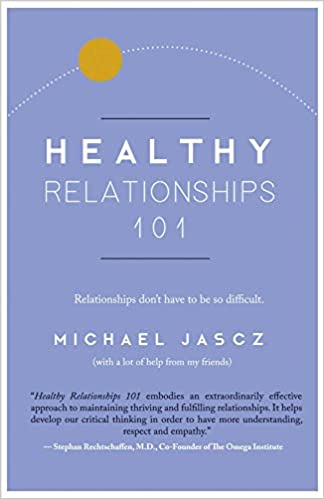
A healthy lifestyle and limiting your sugar intake are the best diabetes prevention tips. These simple lifestyle changes can make an enormous difference in your longevity, health, and overall well-being. You can delay the onset of diabetes by losing weight even if your risk is low. These steps can help you reduce your chances of getting the disease. These actions will increase your life expectancy. They are simple and easy. You can get started today by following these simple steps.
It is important to eat a low-fat and high-fiber diet in order to prevent the development of the disease. Saturated fats can be avoided, but consuming more fiber can help you control your blood sugar. Healthy eating is about eating healthy foods rich in fruits and veggies, beans, nuts, and whole grain. Don't forget to include plenty of exercise into your day. Every week, try a new, fun activity!

Exercise is another way to reduce your chance of developing diabetes. It's difficult for most people to exercise on a regular basis, so it is important to get moving as soon as possible. Try exercising once per week if you are new to the sport. A walk for 20 minutes is a great option to lose weight or tone your body. Stop smoking. There's no need to be embarrassed about smoking, as it can increase your risk of getting diabetes.
Nuts are a great option for those who can't give up soda. They're high in protein and healthy fats and will help keep you full until dinnertime. They're also high in monounsaturated fats, which have been shown to reduce the risk of type 2 diabetes. To avoid refined carbohydrate rich junk foods, you can chew nuts. Consuming walnuts on a regular basis will help you avoid snacking and keep your blood sugar within the normal range.
Reduce sweets intake and reduce carbohydrate intake. It is vital to eat high-fiber food in order to maintain your blood sugar levels. Good nutrition includes lots of vegetables. The higher the fiber content of fruits and veggies, the better. The more fiber you eat, your chances of getting type 2 diabetes under control. It is important to exercise regularly in order to prevent diabetes. You can avoid diabetes by exercising 30 minutes per day.

Avoid trans fats as well as saturated fats. These fats are extremely harmful to your health, and should be avoided. Instead, you should eat unsaturated fats such as olive oil and fish. Also, quit smoking and alcohol. These can lead to insulin resistance and blood sugar elevation. Continue reading if you are looking for diabetes prevention strategies. This information should be shared with others. It will make you happy.
FAQ
What Is The Best Way To Lose Weight?
It can be difficult to lose weight. Many people give up because they don’t know what else to do.
However, there are some simple steps that you can take to shed those extra pounds.
First, ensure that you consume fewer calories per day than you burn. If you consume more calories than what you burn, you will gain weight.
Second, you must start exercising regularly to burn off all those calories. You have the option of doing jogging or walking or cycling, as well as dancing.
Third, quit smoking cigarettes and alcohol. These habits cause you to consume more calories than you would otherwise.
Fourth, you should cut back on junk food. They can be replaced by healthier options, such as fruits and vegetables, lean meats or whole grains, legumes, seeds, beans, and nuts.
Fifth, change your lifestyle. It is possible to wake up at 5 AM to go to work, or to be more active before you get to work.
Sixth, be disciplined and stick to your diet plan.
Lastly, you can join a gym or attend an aerobics class to burn those excess calories.
You will quickly notice the difference by following these simple tips.
Do I have to do it every day?
No! No! It means you need to exercise hard enough or walk fast enough that you are slightly out-of- breath.
What does the milk do for men
Consider what other uses you might have for your milk next time that you buy it. It might also help if you start drinking less coffee.
Milk has been proven to be beneficial to both children and adults alike. Children get nutrients like vitamin D, calcium and potassium from milk.
It also aids digestion, improves bone strength, and promotes weight gain. Milk products can help adults have better immunity systems and less illness.
People who have difficulty digesting milk are also likely to be able to enjoy its many benefits, even if they do not have stomach problems.
You can drink more milk than you would soda or juice. Milk contains more calcium and vitamin D, which can strengthen your bones and teeth.
If you don't like the taste of milk, you can always make your yogurt using plain low-fat milk. Yogurt is an excellent alternative to milk because it is lower in calories, and contains more protein.
Yogurt also has probiotics that aid digestion and increase immunity.
Warm milk can help you sleep better if you have trouble falling asleep. Warm milk relaxes the muscles and increases serotonin levels. It will give you a restful night.
How many calories do I need to eat each day?
This can vary from person to person. An average person needs 2000-2500 calories per day. It's important to assess your life style, gender, age and height in order to determine how much calories you need.
What is the best 7-day workout program?
Three days per week should be spent on cardiovascular training, including running, biking, swimming, and two strength exercises using free weights, weight machine, as well as one flexibility/core exercise such as yoga, Pilates. Each activity should be done at least once per week. The total time for each session should not exceed 45 minutes.
Cardiovascular Exercise: Running/Biking/Swimming
It is important to complete at least 60 minutes of cardio per week. You can aim for 75 minutes a week for best results. Cardio exercises can be used to increase blood flow, stimulate muscle growth, and improve blood circulation.
Strength Training
Cardio exercises work on the heart and lungs. Strength training works on the muscles and bones. Strength training can help you burn calories even when you're not working out.
Flexibility & Core Workouts
To strengthen your whole body, flexibility and core work outs are excellent ways to do so. Yoga and Pilates are both excellent choices.
Cardio Exercise: Good or Bad for Your Health?
Cardiovascular exercise offers many benefits. Cardiovascular exercise improves blood circulation and strengthens your heart muscle. It also increases stamina and helps you lose weight.
Cardiovascular exercise includes running, biking, hiking, swimming, tennis, basketball, soccer, volleyball, football, etc.
It is important that cardio exercises are not performed at high intensities. Doing this could lead to injury.
If you feel fine, only do the cardiovascular exercise.
Never push yourself past your limits. In this way, you may injure or even kill yourself.
Cardiovascular exercise is best done warm-up first. Start slowly increasing your intensity.
Always listen to your body. If you feel pain when doing cardiovascular exercise, you should immediately stop.
It is also recommended to take some time off after a cardiovascular exercise. This will give your muscles time for recovery.
Cardiovascular exercise is a great way to lose weight.
It is the best method to lose calories and reduce belly weight.
Statistics
- Get free shipping and 25% off today. (healthline.com)
- Cardmembers earn 5% Back at Amazon.com with a Prime Credit Card. (amazon.com)
- 10 pounds in a month is likely during a lean bulking phase, especially for beginners. (muscleandstrength.com)
- Candidates and applicants must pass all four tests at 70% (minimum level) to graduate from Basic Deputy U.S. Marshal (BDUSM) Training. (usmarshals.gov)
- An estimated calorie range for moderately active adult males falls between 2,200 to 2,800 calories per day, depending on age. (eatright.org)
External Links
How To
How do I lose weight while working out?
Exercise helps you lose calories by increasing your metabolism and oxygen intake.
If you exercise with moderate intensity, you can safely lose weight.
These are the top tips for burning fat while you exercise.
-
Cardio exercises can include running, walking, swimming or cycling.
-
Do 30 minutes of exercise three times a week.
-
Strength training is a great way to lose weight.
-
Avoid intense exercise. You can build muscle and not break down muscle tissue.
-
Drink plenty of water during exercise. Water helps to flush out toxins from the body and maintains proper hydration.
-
After working out, drink low-fat protein shakes. Protein shakes are great for your muscles and energy.
-
So you don’t feel hungry, eat smaller meals throughout your day.
-
Don't skip breakfast! Skipping breakfast can make you tired and sluggish.
-
Mental health is important. Stressful situations can slow down metabolism.
-
Keep a positive attitude. Studies have shown that people who are convinced they are overweight gain more weight than those who feel they look attractive.
-
Get enough sleep. Insufficient sleep can make it more difficult to lose weight.
-
Stay active. Be sure to get up and move around every hour or two.
-
Maintain a healthy diet. Healthy eating will keep you fuller and more satisfied for longer.
-
Find ways to relax. Tenseness can cause stress hormones to break down muscle tissue.
A balanced diet includes all essential nutrients needed for growth and development.
You should eat six small meals per day rather than three large ones. This gives your body more time to digest the food you eat.
To maintain strong bones, you need to consume 500 mg of calcium each day. Calcium is found in dairy products like yogurt, fortified milk beverages, orange juices, cereals and bread.
Calcium comes from leafy green vegetables, beans, tofu, nuts, seeds, and cheese.
Vitamin D is essential for calcium absorption. It's found in fatty fish, egg yolk, and some fortified foods.
Vitamin E plays an important role in skin health. It's found in vegetable oils, wheat germ oil, peanuts, almonds, sunflower seeds, and corn.
Your body needs zinc for normal immunity function and wound healing. Zinc can also be found in legumes, oysters, meats and whole grains.
Zinc deficiency can cause fatigue and loss of appetite. It can also lead to depression and impaired immunity.
Too much sugar leads to insulin resistance. This results in higher blood glucose levels. Insulin resistance can lead to weight gain.
Insulin resistance occurs when the bloodstream is full of free radicals. Free radicals are molecules with unpaired electrons that damage cell membranes and other parts of the body.
Most free radicals come from pesticides herbicides, food additives, preservatives smoking, radiation, chemical in cosmetics, lotions and household cleaning supplies.
Free radical damage may lead to cancer, heart disease diabetes, arthritis, asthma and other conditions.
A well-balanced diet rich in antioxidants is the best way for you to avoid free radical damage. Antioxidants protect against oxidative damage.
Vitamin C is found in citrus fruits and beta carotene is found in carrots.
Additional antioxidant nutrients include selenium and copper, manganese and zinc.
Selenium protects cells against oxidative damage from free radicals. Selenium can be found in Brazil nuts and liver, kidneys, liver, kidneys, shrimp, cod, turkey and lamb as well as chicken.
Copper protects the brain and eyes as well as the lungs and red blood cells. Copper can be found in meat, shellfish, meat, and organ meats.
Manganese forms an essential part of bone structure. Manganese can also be found in oatmeal, brown rice, spinach and bananas.
Zinc is essential for normal growth, reproduction, wound healing, and average growth. Zn can be found in lean cuts, white fish, poultry, eggs, and other foods.